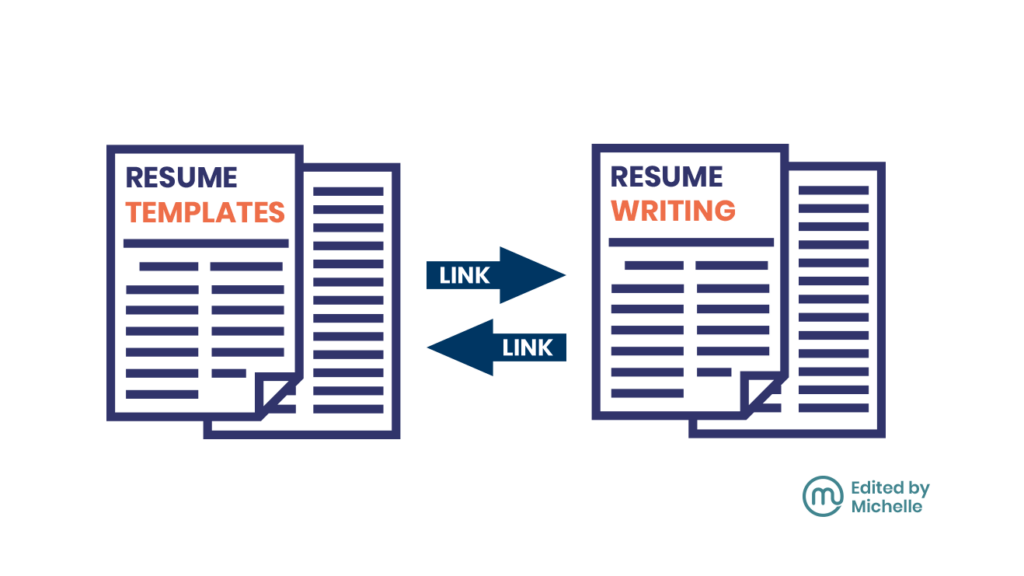“Haven’t I already written about this? I feel like I’m repeating myself.”
I’m an SEO editor who creates data-driven content plans to boost the traffic websites get from online search. The question above is one I get a lot. Writing for SEO certainly does feel like you’re repeating yourself. But there’s method to the madness.
SEO writing is the art of repeating yourself well.
Let me explain.
The Difference Between Books and Blogs—Linear vs. Linked
Writing a blog isn’t like writing a book. Books are linear. A good story unfolds page by page, with a beginning, middle, and end. In a novel, too much repetition would annoy your audience.
Books are linear. The internet is linked. (If a blog were a book, it’d be the “choose your own adventure” style.)
Winning the SEO game means learning how to produce personalized content which exactly satisfies someone’s needs in the moment they’re typing their problems into the Google search box.
Are Those Two Keywords Different, or are They the Same?
Keyword research (the foundation to any good SEO writing plan) quickly reveals the universe of keywords which people use to find things they want to learn about in your niche.
If you look at keyword lists long and hard enough, you’ll start to see patterns. Two distinct types of keyword groupings will surface.
Groups of keywords which are different ways to express one desire.
The keywords “write resume,” “how to write a resume,” and “how to compose a resume” all express the same desire. It’s different ways to type the same thing. The searcher wants info on how to write a resume.
One article on how to write a resume will satisfy people searching all these close variations.
Groups of keywords which are topically similar, but express distinct desires.
Someone searching “how to write a resume” has a different need than someone searching “resume templates.” They’re both preparing a resume, to be sure. But one searcher’s immediate need is writing help. The other searcher’s immediate need is template help.
In this case, I’d recommend you write a how-to article on “writing a resume” and a second page which acts as a hub for all your “resume templates.”
Success in search means giving the searcher the best possible result for their particular quandary. That’s how you’ll earn their click.
The people want templates? Give them templates. Don’t give them a long article on “how to write a resume.” They want what they want.
Now, I know what you’re thinking. People who are searching “how to write a resume” are going to looking for resume templates in a hot minute. Indeed, they are … and that is why you link. Both ways, actually.

I’m sure you’ve heard that writing for SEO means writing with keywords in mind. But the real trick is zooming out, recognizing the natural relationships between the keyword-focused articles you’ve created. Creating a web of links between your articles allows you to:
- Earn each searcher’s click with their immediate need, and then
- Satisfy their next need, without them even having to ask.
Anticipate their needs, and you haven’t just earned their click. You’ve earned their trust.
People Read Websites Differently Than You Think They Do
No one is reading every blog post you write. Not even your mother.
When people write to me worried that they’re repeating themselves too much, it’s because they imagine that a lot of people are reading each of their blog posts from start to finish, by publish date.
But studies have shown that we use websites more than read websites. We skim and then click on links which hold promise—following an information trail that’s focused on finding the answer to the question we seek.
Look at your analytics and you’ll see the “choose your own adventure” paths people use to navigate your site. If everything is set up correctly, people should be entering your site via search-specific internal pages, and then navigate your site via internal links in patterns you set up to anticipate their needs.
3 Strategies to Make SEO Writing Less Mundane
As an author, I do understand the pain. Writing really helpful content for an audience of people who ask questions that are related—but not quite the same!—gets a little tiring after a while.
Here are my top 3 tips to keep you motivated, so that SEO writing doesn’t leave you bored out of your mind.
1. Vary Between Deep-Dive Writing and Overview-Style Writing
Sometimes we want in-depth answers (“how should I dress for a corporate interview”) and sometimes we want overviews (“interview tips”). Each type of keyword demands a different style of writing, a different genre of content. If you’re getting tired of SEO writing, switch it up. Write a deep dive article one day, and a wide overview the next.
2. Write on Multiple Themes at the Same Time
When I’m creating regular content briefs for a client, I aim for a healthy balance between writing on closely related topics (to save them time) and writing on diverse themes (to keep them interested). Working on three topical clusters at a time works well. Choose the three main topical areas you want Google to know you for, and then switch between these themes.
3. Remember You’re Writing for People, not Google
Never forget that you’re answering real people’s questions. (This will become abundantly clear once you start getting traffic from search, and you see the real words people use to find your content).
But until the traffic starts coming in, I find it helpful to simply cultivate this attitude:
Everyone deserves an expert, comprehensive answer to every one of their burning questions.
Focusing specifically on the questions people are asking you through their search keywords can help you muster up the energy to write about the same thing from a new perspective.


